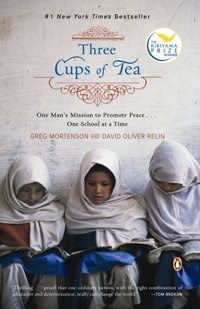
I finally read The Story of Edgar Sawtelle. Calm down Suze Orman, I did not buy the book (nor did I charge an unholy number of items at the Gap Outlet last week – you weren’t there, you can’t prove anything). My dear friend and writing partner, Kris, shipped the doorstopper of a book to me all the way from Germany. God Bless her.
I think of the book as having three distinct parts. I devoured the first part. David Wroblewski develops the relationship between Edgar (a mute boy), his parents, and the fictional breed of dogs they raise and train at such a languid, pleasurable pace, I felt almost guilty reading it – it was the fictional equivalent of an expensive Cabernet and a box of dark chocolate truffles. In the second part, however, it stopped tasting so good. The language was still beautiful, but the story seemed too drawn out, and I was frustrated by Edgar’s choices. I was, again, invested at the end, but I’m afraid I binged. I gobbled it up because I had to know what happened, without considering the consequences of eating too fast. The book ended abruptly for me, and without satisfaction. I didn’t for a minute regret having spent time with it, but I was disappointed it didn’t turn out the way I wanted (kind of like stepping on the scale after the aforementioned Cabernet and chocolate). Much of the book seemed too convenient – when Edgar needs to know something, his father’s ghost shows up and tells him; when Edgar needs to know something else, the old woman in town, who just happens to have the gift of prophecy, shows him; when Edgar still is unsure, his dogs perform an act that points him to the truth. And I took issue with the characters, who struggle with choices that seemed apparent to me. Of particular note, I felt I didn’t know enough about Edgar’s uncle, Claude. There was no explanation for his truly evil behavior, and that unnerved me. Where was the character background? The Freudian analysis?
I poked around online looking for answers and I learned a hard lesson…I’M A MORON. The Story of Edgar Sawtelle has convenient plot devices, larger than life characters that make unnerving decisions, and an ending that recognizes good doesn’t always triumph because The Story of Edgar Sawtelle is a tragedy in the truest sense. The Story of Edgar Sawtelle is Hamlet. Again, I’m a Moron. Now that I know, I don’t understand how I didn’t recognize it at once (especially since, I’m ashamed to admit, I majored in Theatre with a Shakespeare emphasis – in my defense, the Bard has taken a backseat to Encyclopedia Brown and The Magic Treehouse kids these past few years). Edgar is Hamlet. Almondine, Edgar’s faithful canine companion, dismissed by Edgar in a fit of jealousy and contempt, is Ophelia (I don’t have to spell out what happens to her - like I said, it's a tragedy). Edgar is tormented by his father’s ghost. Edgar’s uncle, Claude is…Claudius. Duh. There is a reenactment of murder by poison, a death resulting from mistaken identity, and a “king” from another land coming to rule the dogs. The Sawtelle dogs are exceptional because they can make their own choices – in effect, they decide whether “to be or not to be.”
So now that I know, I can’t decide if David Wroblewski is brilliant, or a copycat. But, I will say the book makes sense now. In fact, I think I might read it again with Hamlet in mind and let myself get lost in the tragedy and dilemma facing Edgar. Like Shakespeare, the author has an exceptional command of language (though not in iambic pentameter) and I wouldn’t mind losing myself in the pages a second time. Plus, despite my initial reservations, I actually liked the dogs.
When this book is made into a movie, I hope Hollywood has the sense to cast the talented and soulful Freddie Highmore (from Finding Neverland, Charlie and the Chocolate Factory, and The Spiderwick Chronicles) as the soulful and conflicted Edgar. (Thank you, Kris, for the suggestion.) He was made for this role the way Johnny Depp was made to play Captain Jack, and if the movie is directed with care (I’m thinking Ron Howard or Ang Lee), I see a golden statuette recognizing his portrayal. A character actor should fill Claude’s role. I vote for someone along the lines of Neil McDonough, or that one guy who looks like a Robert Patrick/Christopher Walken hybrid after a hard day's work (can anyone help me?). Tim Roth could be exceptional, as well. Edgar’s father, Gar, doesn’t say much, and when he does speak his words are measured. I saw Tim McGraw on SNL this past weekend and, I gotta tell you, I think he could maybe make a good Gar. I haven’t seen him in any movies (Flicka and Friday Night Lights weren’t my cup of tea) so I could be waaaayyyy off base. I'm most concerned about the casting of Edgar’s mother. I can imagine some starlet trying to make this her “no, really, I’m a serious actress” movie. Trudy (as in Hamlet's mother, Queen Gertrude - sheesh) is the lone female character in the movie (besides the dogs and the prophet and the little girl in the cafe) and she needs to be strong. Maybe Ashley Judd or Sandra Bullock? And finally, there are the dogs. I picture a German Shepherd, Rottweiler, Retriever, Akita, St. Bernard, Mastiff mix—the dogs need to be big and broad-chested with intelligent eyes. And, most importantly, they must be real. Computer generated dogs will not cut it.
